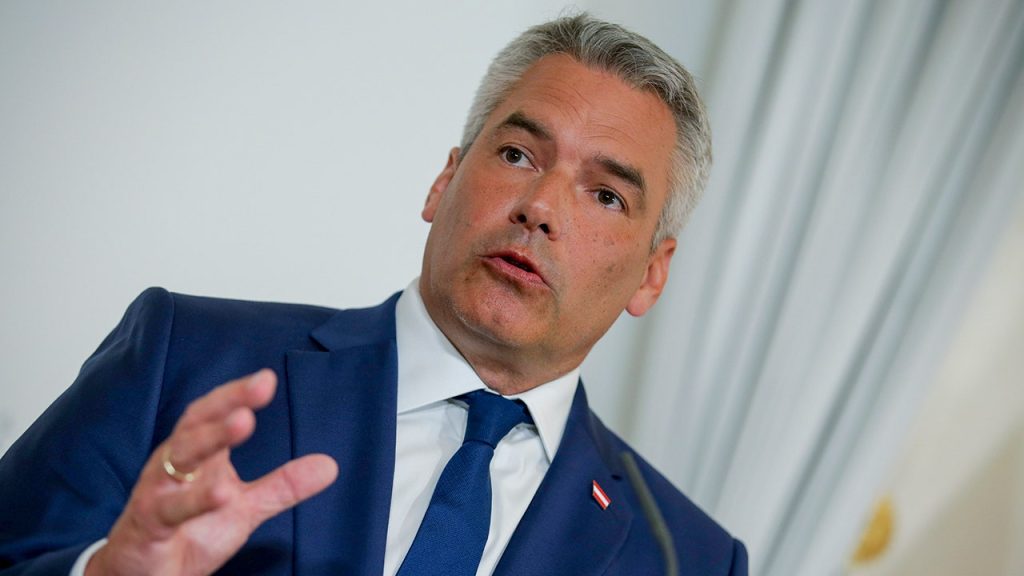Austria’s far-right Freedom Party, led by Herbert Kickl, stands to win the national election for the first time on Sunday. Kickl is vying to become the new chancellor, aiming to bring about a coalition to secure a majority in parliament. Recent polls have shown a tight race, with the Freedom Party at 27%, the conservative Austrian People’s Party at 25%, and the center-left Social Democrats at 21%. Kickl has seen a surge in support since the last election in 2019, as the party capitalizes on voter concerns surrounding immigration, inflation, the war in Ukraine, and the COVID pandemic.
The Freedom Party’s campaign has resonated with voters who feel unsafe in their own country and are anxious about the future. The party’s platform includes calls for stricter border controls, suspension of the right to asylum, and the repatriation of foreign nationals. Under Kickl’s leadership, the party has moved further to the right, aligning with nationalist and far-right groups. The party’s rhetoric is seen as aggressive and deliberately provocative, with Kickl refusing to distance himself from controversial movements like the Identitarian Movement.
On the other hand, Chancellor Karl Nehammer’s People’s Party has faced declining popularity due to a series of crises, including the COVID-19 pandemic, Russia’s invasion of Ukraine, and rising energy prices. The government’s handling of these issues, along with other missteps such as a failed vaccine mandate and leadership changes, have eroded public trust. Nehammer has positioned his party as the stable center, but the crises have taken a toll on the People’s Party’s standing.
The upcoming election in Austria will likely decide whether the far right gains power in the government. While Nehammer has ruled out working with Kickl directly, a coalition between the People’s Party and the Freedom Party could be a possibility if the former emerges as the winner. This potential alliance, along with other possibilities like a coalition with the Social Democrats and Neos, will shape Austria’s political landscape in the coming months. The outcome of the election will also have implications for Austria’s position on issues like sanctions against Russia, military aid to Ukraine, and the European Sky Shield Initiative.
The campaign leading up to the election has been marked by heightened tensions between the far right and traditional parties, with Kickl positioning himself as a candidate for the people. His aggressive rhetoric and controversial stances have polarized voters and drawn criticism from opposition leaders. Voters are divided between those who feel alienated by the current government’s policies and those who fear the rise of extremism in Austrian politics. The election will test Austria’s resilience against the far-right wave sweeping across Europe and the impact of recent global events on domestic politics.
Austria’s next government will face significant challenges, including addressing the economic impact of recent crises, restoring public trust in institutions, and navigating the country’s response to ongoing international conflicts. The outcome of the election will determine the direction Austria takes in the coming years and the extent to which far-right ideologies influence national policies. As the campaign enters its final days, voters will have to weigh their concerns and values against the promises and proposals put forth by the candidates, shaping the future of Austrian democracy.


